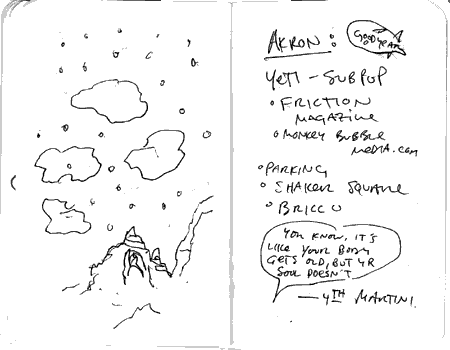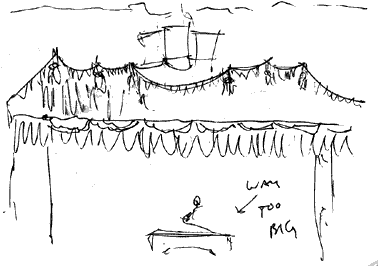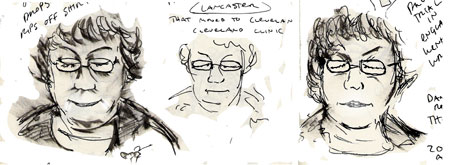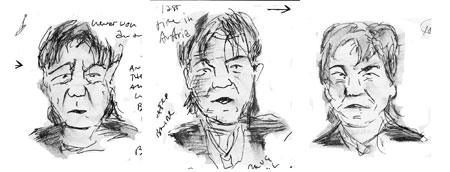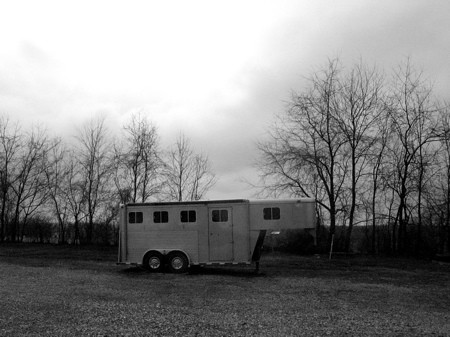
The Sunday NYTimes came a day late to Circleville this Easter, so Meg, Mom, and I read it over a breakfast of leftovers. I was reading what looks to be the last installment of Ware’s Building Stories series, and Mom said, “What do you think of that?” And I said, “well, I read it for the technique, but the story lines are pretty boring.” And Mom said, “That’s what I thought, but I was afraid that you liked it.” Then she explained to me that she found it really hard to read, after a lifetime of teaching kids left-to-right, up-and-down. So I told her that I thought everybody who comes to his work basically has to re-teach themselves to read. And she said, “Oh, good. I thought I was the only one.”
THEN I was reading in the Book Review about Flaubert, and I had remembered that somewhere (?) someone had suggested that Jimmy Corrigan would make a great companion to Madame Bovary on a reading list. About Flaubert: “Sentences were laid as carefully as fuses. Progress was excruciatingly slow.” And: “The romantic in him wanted to soar above it all, to write a book of pure music, “a book about nothing,” a book held together only by the “internal force of its style.”
That’s all I’ve got. I’m going to grab my old copy of Madame Bovary to take back to Cleveland for further rumination.
Tonight we’re going to drive straight up to Oberlin to see Lynda Barry. I’m really interested to see what a fiction “reading” by a comics writer looks/sounds like. Since I always bring my sketchbooks to these things, I’m going to use Brandy Agerbeck’s graphic facilitations and Alison Bechdel’s recent renderings of a visit to the Center for Cartoon Studies as inspiration. (Check out the program at CCS, by the way. That’s what I’d like my MFA studies to look like. If only CCS had funding and accrediation…)
If you want some more reading, check out Etgar Keret in the funny pages, and Sammy Harkham’s “Black Death” from CRICKETS #1 as a webcomic.
